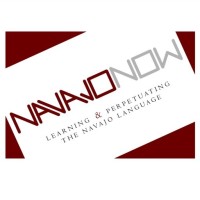Orson J. is originally from the small community of Twin Lakes, New Mexico. He grew up on the rez, attended college at New Mexico Tech then moved to the east coast. He now resides in the Maryland/DC Metropolitan Area where he works as an engineer designing and building satellites and participates in the Wááshindoon Diné bizaad group.
1. What is your earliest memory of the Navajo language?
My earliest memory would be my childhood. Growing up, my family was always talking Navajo.
2. When did you decide to study/learn Navajo? How long have you been learning/studying?
I always wanted to learn/study but decided when I moved away from the “Rez.” I have been studying off and on throughout my life.
3. What kind of challenges do you face as you have been learning?
I can understand it better than I can speak it.
4. What level of fluency did you have when you started studying/learning? What level of fluency do you have now?
Early childhood I could speak and understand but over the years I drifted away from speaking it. When I hear it I can understand it. Now I’m starting out as a beginner.
5. What is your ultimate goal with the language?
To speak it fluently, carry a conversation with my elders.
6. I personally have a wish list of types of media I would like to see mainstream in Navajo, what is something you would want on your Navajo Learning WishList?
More smartphone apps. I rather like to hear/speak it rather than learn the grammar/spelling
7. There are quite a few Navajos wanting to learn Navajo but probably don’t know where to begin. What do you suggest they do to begin?
I am in the same situation. If I was back on the rez it would be easier since family speaks it, but away from the rez I would suggest Rosetta Stone. I am new to it. The Dine Bizaad group, we found that Rosetta stone was an easier way of learning. Then again there are also Navajo classes in college and in high school. I would recommend taking such classes if available.
8. For those who are fluent or have a level of speaking fluency, what do you think they should do to either maintain that fluency or improve it?
I can’t think of any other way to maintain the language other than speaking and hearing it.
9. What kind of materials do you use, etc.?
Now, Rosetta Stone, local Navajo radio stations using the internet, and family. I try to talk to family in Navajo.
10. What should fluent speakers of the language be doing to help this generation who wants to learn?
Back to question 8. Speak it fluently, encourage the younger generation to maintain and keep the language. Teach that it is important to maintain. At one point in our history it helped save this country. We, as a people, have to keep that.
11. What kind of advice or words of encouragement do you have for Navajo language learners?
Keep trying. I am still learning and I still want to learn. I know there are many things I can learn from my elders who only know Navajo.


